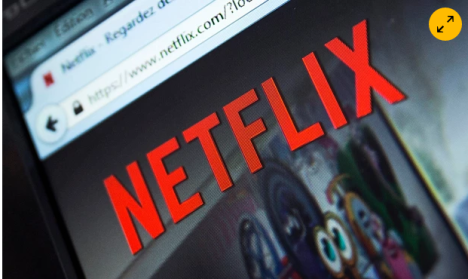The ads features messages like “don’t join the army” and “don’t become a better you”. The work was created by Karmarama’s chief creative officer Nik Studzinski and creative director Adam Kean.
Morning Update: Army says ‘Don’t join’; Rebranding cannabis; Netflix to VPN block plans questioned; YouTube returns to Pakistan
Campaign Live: Army goes after Generation Z with reverse psychology
Karmarama’s new campaign for the British Army uses reverse psychology to attract recruits from Generation Z.
The posters are aimed at 16-24 year-olds, or Generation Z. A survey commissioned by the Army found that this demographic was altruistic, open-minded and keen to support themselves. The army hopes that the new campaign will tap into that generation’s desire to do something that matters in life.
In many ways, brand marijuana was established a long time ago. The accoutrements of weed smoking found at head shops in cities and college towns across the U.S. were all adorned with requisite motifs: dancing bears and tie-dyed swirls, skull-faced jesters and Rastafied marijuana leaves.
Now that cannabis and its offshoot products are available legally to medical and recreational imbibers from retailers in Colorado, Oregon and Washington, companies producing regulated marijuana, infused cookies, candies and extracts and the dispensaries selling them aim to give marijuana a makeover – laying the groundwork for product branding that has no precedent in the mainstream market.
The Guardian: Doubts cast on Netflix plan to stop use of VPNs to get around regional blocking
Commentators have questioned Netflix’s power to stop members from using virtual private networks (VPNs) to get around regional restrictions on content, days after the streaming service announced a crackdown.
David Fullager, the vice-president of content delivery architecture for Netflix, wrote in a blog post on Thursday that “in coming weeks” Netflix members would only be able to access titles available in their territory, as the company worked towards offering the same films and TV series everywhere.
He did not give specifics about the technology that would be used to stop the use of VPNs, proxy servers or “unblockers” – only that Netflix employs “the same or similar measures other firms do” and that “this technology continues to evolve and we are evolving with it”.
The Drum: Why tennis, and its sponsors, will survive the match-fixing claims
Sport has been rocked by scandal over recent months and tennis is the latest to fall victim to allegations of match fixing.
Tennis is not only a popular betting sport, it is also ideal for fixing matches for a number of reasons. There is only one person that needs to be involved, the game often turns on a few points and a few points thrown can change the result.
Live betting means that odds of over 40-50/1 can easily be available, so a $50,000 bribe can be covered 2 to 1 with a $3,000 bet at 35/1. Rumours about betting fraud have always circulated around typically minor and first round matches.
The Financial Times is starting the year with a diet — for its webpages, which have been slowed with all manner of ad tech and analytics gunk over the years. That means, according to FT product head Bede McCarthy, going from a “culture of addition” to a “culture of subtraction.”
The rise of ad blocking has been a wake-up call at many publishers to take a hard look at the user experience. At the FT, that comes down to speed. The goal: get pages to load in under a second, down from the 14 seconds it could take for a page to fully load on its previous legacy site, according to McCarthy.
Mumbrella Asia: YouTube returns to Pakistan in localised form
The world’s largest video platform YouTube is back in Pakistan after a three-year ban.
The re-emergence of the platform comes in a localised form, with the government able to remove content that it deems offensive, but only after a review by Google, YouTube’s owner.
YouTube was banned from the country in 2012 after an anti-Islamic film was uploaded, prompting protests across the country.
“Where we have launched YouTube locally and we are notified that a video is illegal in that country, we may restrict access to it after a thorough review,” Google said in a statement shared with the Guardian newspaper.








“Yvan eht nioj…..yvan eht nioj…..yvan eht nioj…..”
User ID not verified.
I mean, if Netflix has figured out how to break through the connection between a single IP and a VPN server, that happens before connecting to Netflix – they may just have another major revenue stream on their hands.
I’m sure many governments, beginning with the US, will pay hundreds of millions for this magic solution.
User ID not verified.
There’s no such thing as ‘reverse psychology’. It’s either ‘psychology, or it isn’t.
User ID not verified.